Even the very best car batteries are almost always overlooked - that is until you start having problems with them. When the battery goes flat, you won't be able to move your car, and modern engines now put even more stress on batteries than ever before. Features like stop-start technology and ever-increasing computer-controlled ECU systems require a very different type of battery to that which was common a few years ago. Even if you have a classic or hobby car which doesn't demand too much power, a battery can still go flat if not used over longer periods, but you can avoid this by using something like a solar trickle charger to keep things topped up.
Not all batteries are the same, though; you wouldn't fit the battery from a Volkswagen Up into a Lamborghini Aventador, for example, and expect it to work. You need to work out which battery your car needs, then select one of the best car battery options on the market.
To find out which car battery is right for you, go to your owner's manual. That's where you will be able to find the battery's group size - a good place to start when deliberating over which to get. If you no longer have access to the manual, one of the easiest and quickest ways of finding the correct battery is to visit the Amazon Garage. Once there, just enter your vehicle details, and you'll be automatically directed to the correct parts and spares for your vehicle.
The best car batteries 2025 at a glance:
To help you make your decision, we've collected a few of our favourites and pointed out the pros and cons of each option. And if you're ever in the market for a device that will provide some power into your battery in the event of an emergency, we've tested some jump starters and explain all you need to know about them.
The best car batteries
The best battery filtering tool
 Via Amazon
Via AmazonYou can't just pick out any car battery that looks good to you. It has to be compatible with your vehicle to be able to power up the array of functions throughout.
Amazon can help you out with this with the Garage tool. All you need to do is fill in your vehicle's details, and then you go car battery shopping with ease as the search filter will list the ones that'll fit your vehicle.
The best car battery
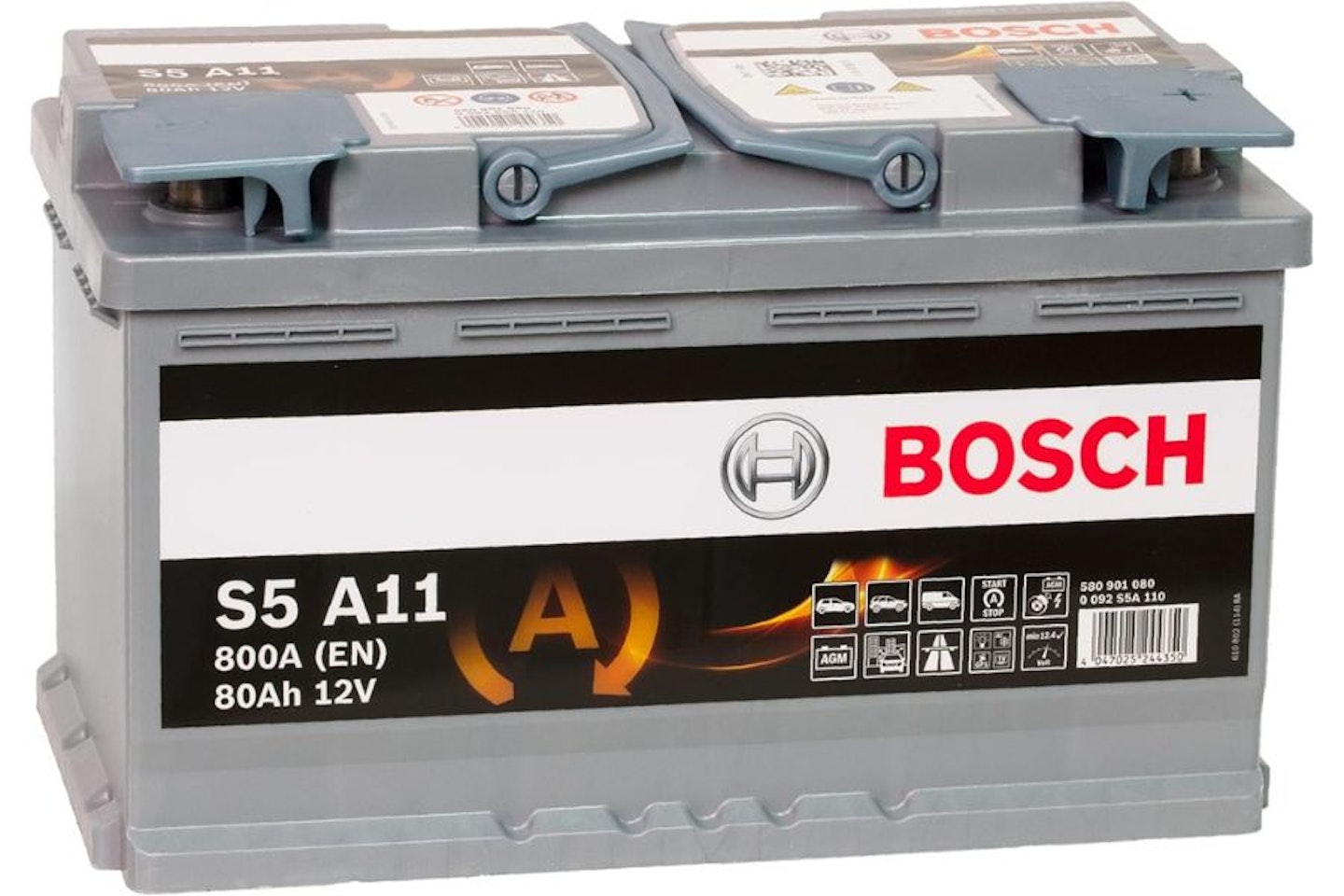 Via Bosch
Via BoschIf you need a new battery for your ultra-modern daily driver, there's a good chance this one will do all you need it to. It's an 800A unit that's designed for vehicles with stop/start and even regenerative braking in mind.
It even uses Absorbent Glass Mat (AGM) technology. What this means is the battery is capable of allowing larger quantities of energy to pass through - therefore making it the perfect choice for more modern vehicles.
Pros
- Catered for vehicles with stop/start systems
- Designed with regenerative braking in mind
- Great quality and very sturdy
Cons
- The capabilities do come at a larger premium than others
Best for large engines
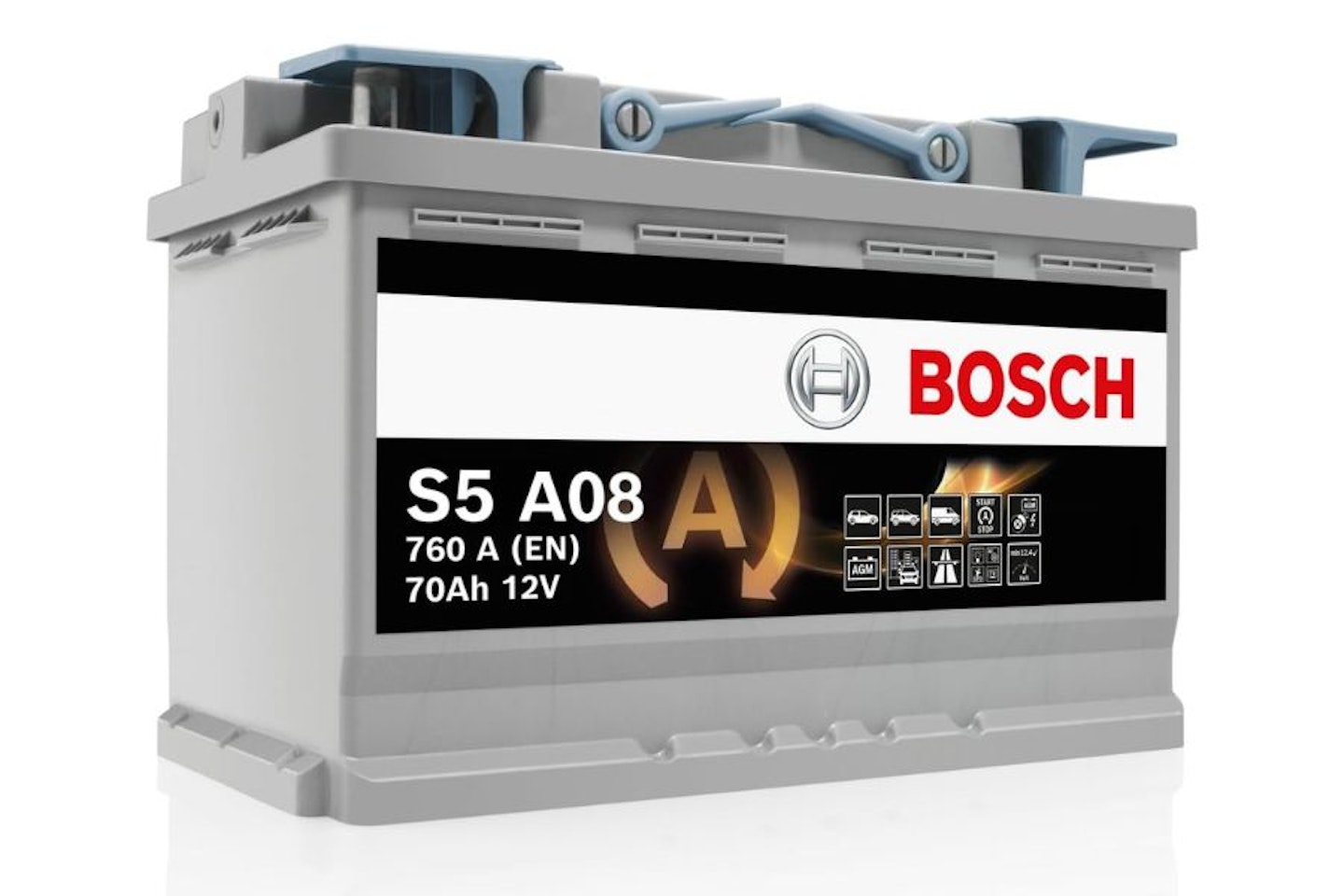 Via Bosch
Via BoschThe perfect choice for bigger engines, the Bosch S5 range may cost more than other batteries, but the quality and longevity are undeniable. It also uses AGM tech, making it ideal for modern vehicles.
It is also excellent during cold starts, making this a great choice for harsh environments where battery start-ups are a must. However, this reliability does come at a cost, as this is one of the more expensive batteries on the market.
Pros
- Latest battery technology
- Excellent battery performance
- Powerful unit which is suitable for many cars
Cons
- Overkill for many cars
Best for mid-sized cars
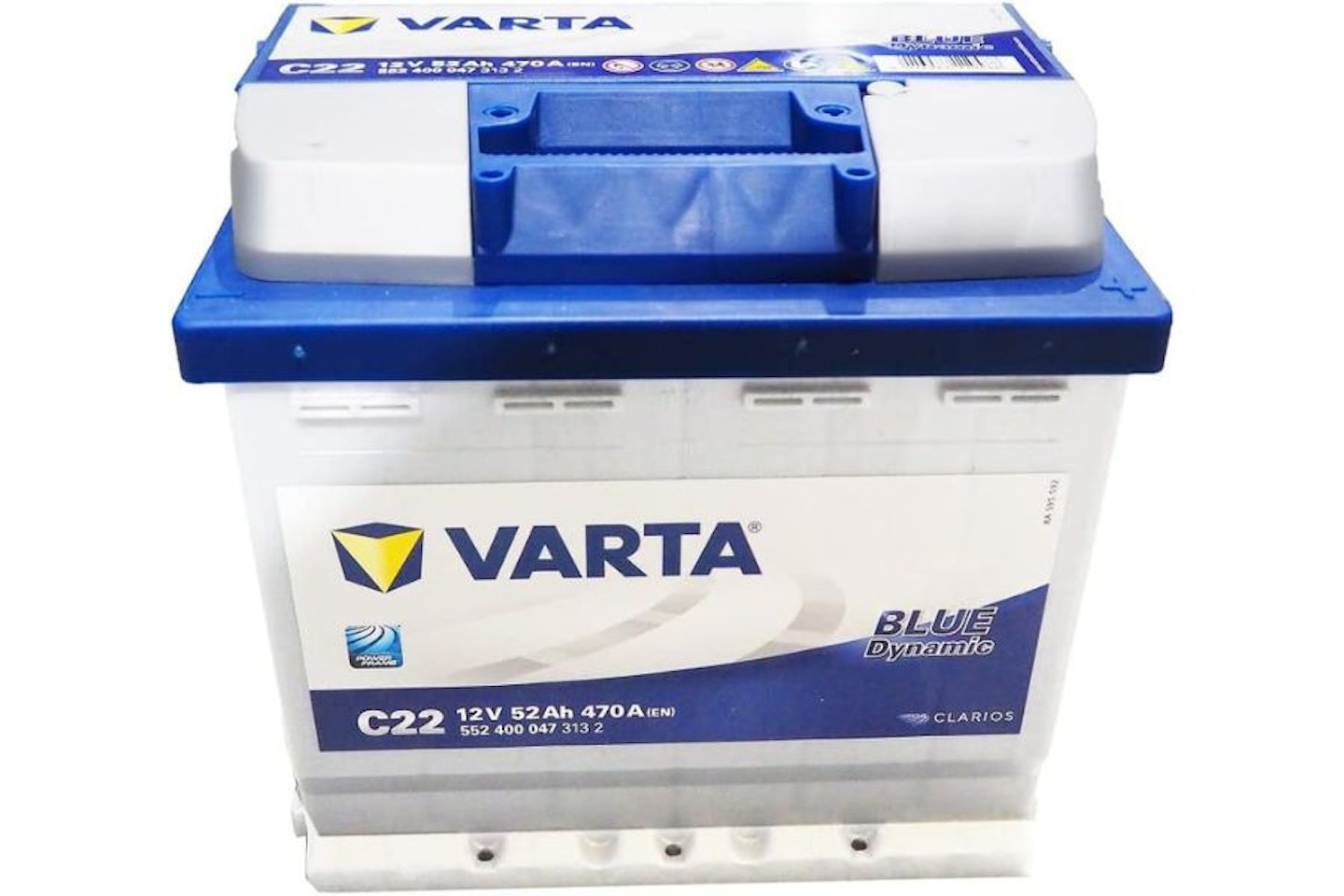 Via Varta
Via VartaVarta is a popular choice of battery for many car manufacturers because of its quality and pricing. As such, choosing a Varta battery may maintain the OEM (original equipment manufacturer) spec of your car. This C22 model is designed for small and medium cars - compatible with the VW Polo, Toyota Yaris and Citroen C1, among others. The battery is manufactured with a patented PowerFrame grid for reliable starting power, fast recharge and corrosion resistance, offering outstanding quality every time it's turned on.
Pros
- Great build quality
- Good value for money
- Perfect for normal mid-size cars
Cons
- Unsuitable for start-stop systems
Best budget option
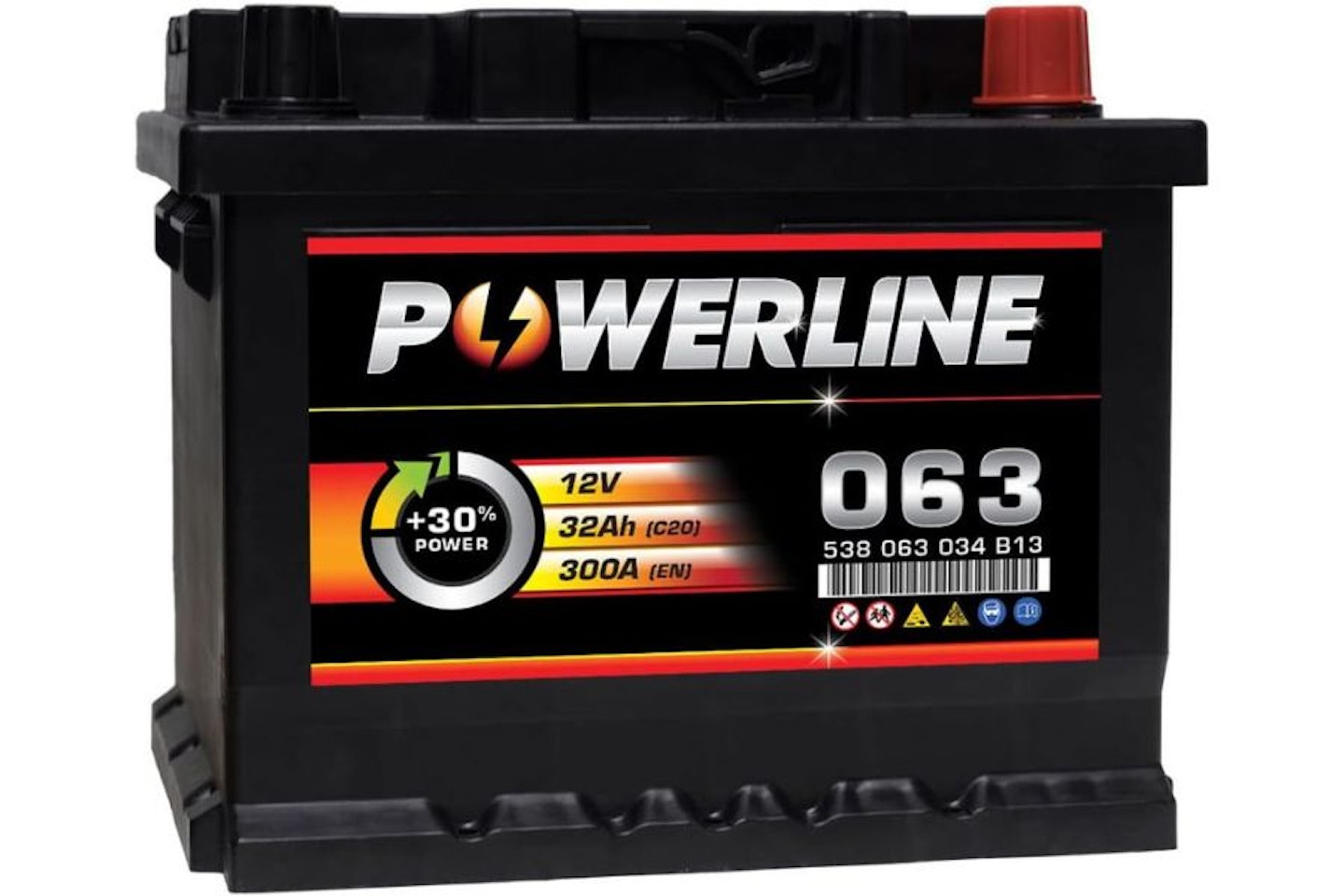 Via Powerline
Via PowerlineIt's not the most recognised brand out there, but Powerline does have good reviews and very low prices. This battery is great if you want to save pounds (you can save up to 50% over other batteries). Despite the discount price, however, this battery still caters to the demands of modern cars and is covered by Powerline for four years. Just remember that it won't last as long as premium options.
Pros
- Good value for money
- Long guarantee, which is reassuring
- Quite powerful for its price point
Cons
- Doesn't last as long as more expensive alternatives
Best for small engines
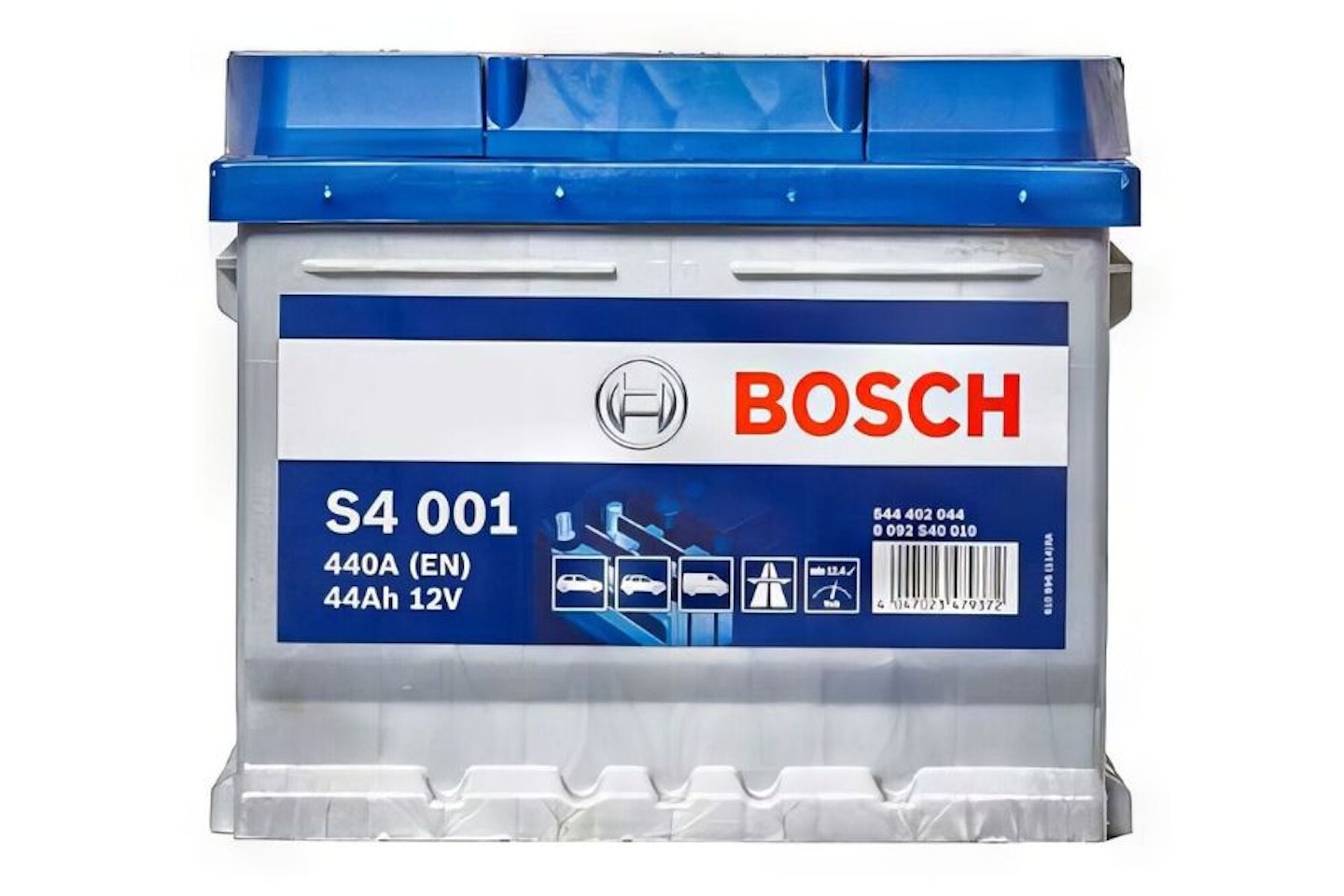 Via Bosch
Via BoschProbably the go-to brand for quality car batteries, Bosch has a reputation for quality. This S4001 battery is designed for smaller engines (like a supermini), will provide excellent all-round performance and is sure to last a long time. The Bosch S4 range has up to 15% more 'Cold Cranking' power than the original and up to 20% longer service life by virtue of the battery's 'Power Frame' technology.
Pros
- Excellent battery for small cars
- Good quality unit and well-made
- Suits standard power systems perfectly
Cons
- Unsuitable for start-stop systems
Best for start-stop engines
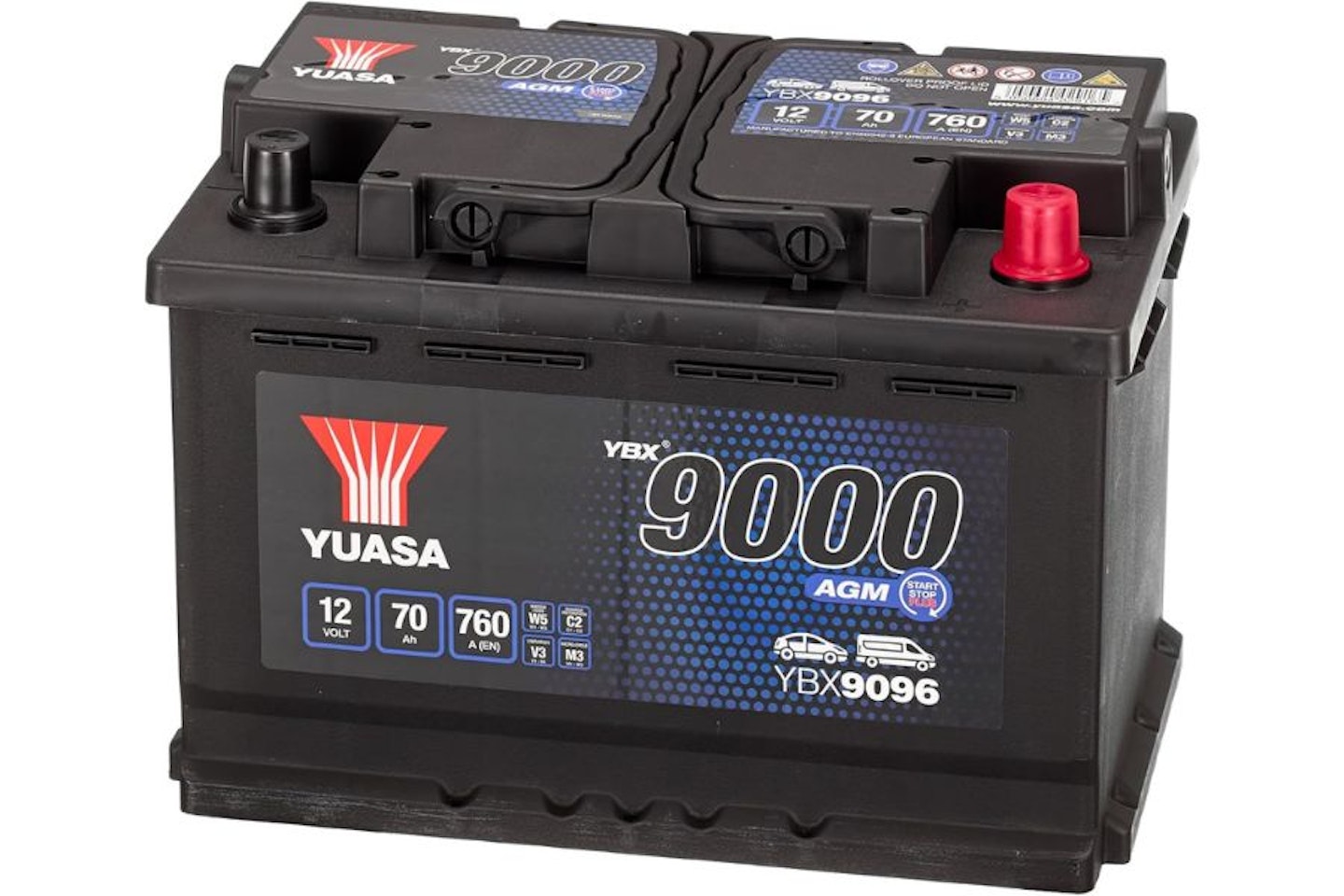 Via Yuasa
Via YuasaQuite a few cars now come with start-stop technology, a feature that'll cut the engine when stationary to save fuel. The problem is these systems can drain the car's battery; it'll still need to run the headlights and so on. That is where this start-stop battery comes into play.
Designed and engineered for vehicles with advanced technology, this battery caters to stop/start systems, regenerative braking and energy recovery. Designed to handle up to 360,000 engine starts, it'll be perfect for when you're stuck in a traffic jam.
Pros
- Designed for start-stop systems
- Caters to up to 360,000 engine starts (claimed)
- Very powerful unit
Cons
- It's a big battery - make sure it fits your car
Best for smaller-engined cars
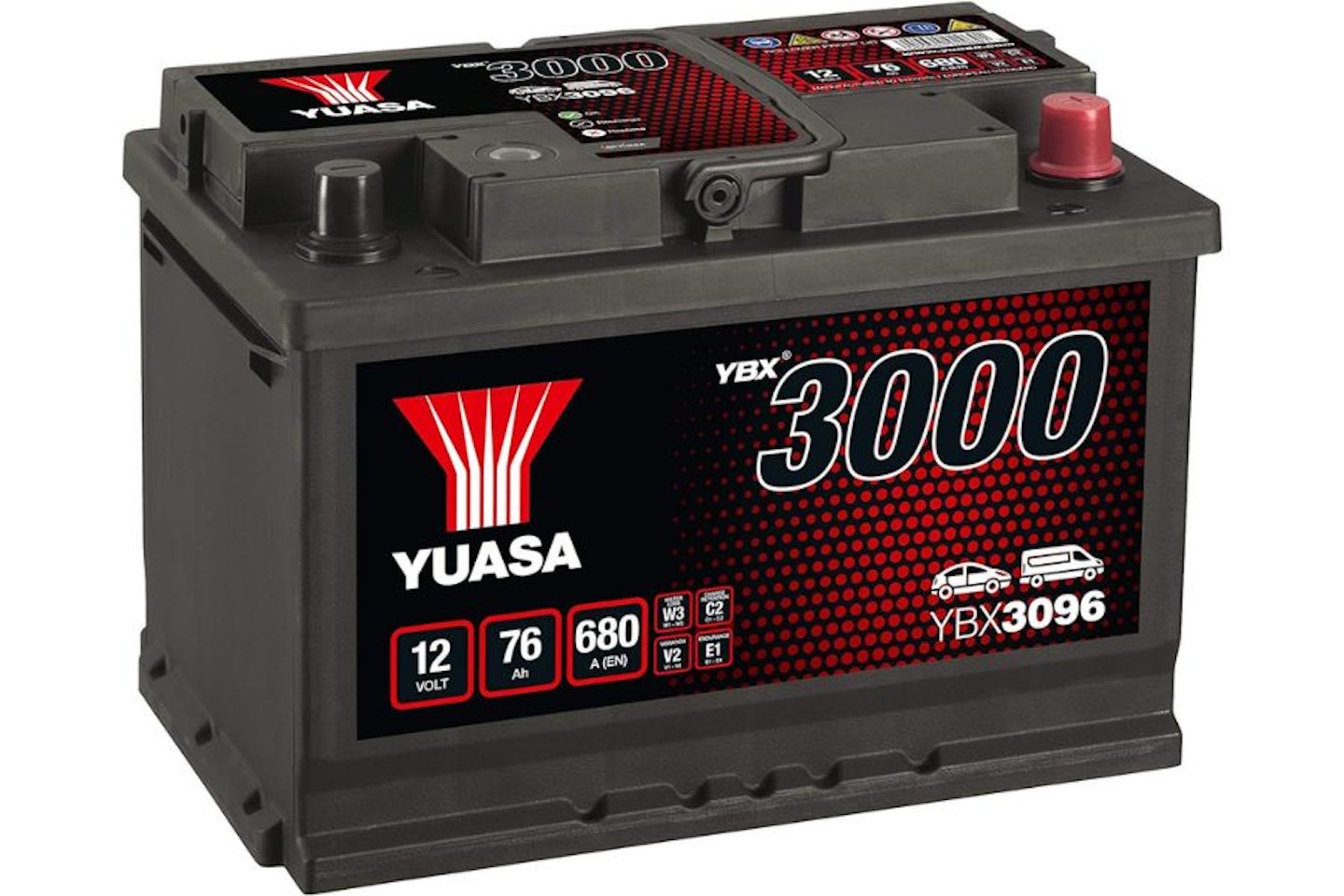 Via Yuasa
Via YuasaThis is one of Yuasa's entry-level car batteries that will suit a multitude of different cars without the latest engine and hybrid tech. It's claimed to be able to cope with 30,000 engine starts and caters to 'standard' vehicle power demands according to the brand.
Pros
- Great battery for a lot of vehicles
- Deals with standard vehicle power demands perfectly
- Good build quality
Cons
- Can't cope with stop/start and advanced systems
FAQs
How do I know when my battery needs to be changed?
There are a few telltale signs that your battery needs replacing. If your car is bearing some of the following symptoms, it might be worth checking it out.
Engine - if your engine performance isn't quite up to scratch, there may be an issue with your battery. If you turn the key to no ignition at all - it takes the battery to ignite your fuel/air mix - your battery might be completely dead. This could be solved using a portable jump starter, jump leads or a charge-up at home. However, if the battery is just slow or struggling to recharge, it's time for a new one.
Electrical components - as well as the engine, many other components rely on the battery to function properly, including the dashboard display. If your dashboard lights are beginning to dim or flicker - or perhaps your satnav colour screen is beginning to lack in performance, this may well be a battery related issue.
Age - like the rest of the car, a battery also has a finite service life. Most batteries are able to function properly for roughly three years. Some can live far longer than this, but if you've been running yours for over five - even if it still works a treat - it may well be time to start considering a new one.
If your battery is going flat and you are having to use a battery charger to boost it every couple of days, is struggling to turn over, or there is a persistent warning light on your dashboard, it's probably a good idea to invest in a new car battery.
How do I find the right battery for my car?
The quickest and easiest way of finding the right battery for your vehicle is to use a search filter. Amazon Garage is a great example, but plenty of other retailers have them as well to help you find your next service part that's compatible for your make, model and engine of your car.
Do car batteries come charged?
The simple answer is yes. When you buy a new car battery, they're always ready to be put straight in and fire a car up. This means therefore that when you buy one in a store or order online, you don't have to charge it up manually before using it, which is very handy if you need to get your vehicle moving quickly.
Do car batteries recharge themselves?
In principle, yes. Car batteries are the heart of any combustion vehicle, yet they always need a supply of power in order to keep them topped up. This is achieved by the engine providing power to the alternator. In turn, the alternator then provides power to be sent back to the battery.
If the alternator fails on a car, no power is being sent to the battery which will eventually cause the vehicle to lose power and cut out. The key clue to such failures is a worn auxiliary belt which is in danger of snapping. The belt is what connects the engine to the alternator to ensure the supply of power is there.
With that said however, car batteries will wear out after a while. So, if you suspect some electrical woes in your vehicle, or if it easily goes flat, one of the causes is a battery that needs replacing.
Are car batteries lead acid?
Some are lead acid based, but there are many types of car batteries out there. These include Absorbent Glass Mat (AGM), Starting Light and Ignition (SLI) batteries, and more. However, the vast majority out there are lead acid batteries and that's what you're most likely to come across under a car's bonnet.
Are car batteries covered under warranty?
There's no right or wrong answer to this. Warranties come in all sorts of different terms and agreements, so if your vehicle has a warranty attached to it, it's worth checking over your policy and/or your vehicle handbook.
With that said, when purchasing a car battery, they'll sometimes have their own warranties included. So, it's worth looking to see what the return and/or exchange policy is, should you have an issue with it later on.
Are car batteries recyclable?
It is possible to recycle car batteries, but it's imperative that you dispose of it correctly. The easiest method is to take it to your local recycling centre where a battery section will be labelled. You can also take it to an automotive product store as they use approved waste disposal companies which can deal with old car batteries, though its worth checking if your local one can do so.
Recycling these batteries helps conserve materials such as lithium, aluminium and copper which are useful for many other industries.
Aaron Hussain is a commercial content writer at Bauer Media writing for Parkers and CAR. He is obsessed with classic cars and anything with a fascinating story to tell.